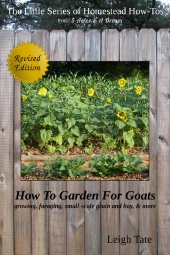I'd like to share my thoughts and hear any ideas others might have on a subject that's been nagging at back of my mind ever since I began learning and thinking about issues related to permaculture a few years ago.
Most of the existing permaculture literature I've encountered assumes that the reader will be working with a single, static piece of land, typically over the course of many seasons or years, with the luxury of being able to harvest edibles from the same perennials one plants, grow seeds in the same soil one has nurtured with
compost or other decomposing organic material, and generally just do things in the same spot over a long period of time.
While this all sounds like a nice idea, and I'm sure it works great for a lot of people, this vision doesn't seem to match the circumstances that I and significant number of my close friends have encountered when dealing with the real world. A much more common scenario is that a few months after finding a place that appears to be affordable and livable enough to be satisfactory, something goes awry. Often it's landlords attempting to raise rent or impose new restrictions on the use of a property. Sometimes, it's issues arising with other tenants. But whatever the reason, the result typically ends up the same: pack up and leave the budding garden (if it even exists yet) behind. On to the next mess!
For a long time, I've allowed this to convince me that I "can't"
really practice permaculture until arriving at the ever-receding goal of finding the "right" piece of land to stay on, the "right" ecovillage to settle down in, or even just a house in town with a little yard to garden and build up soil fertility for more than a single season. But recently (on Wednesday afternoon while I was napping by the Clark Fork, to be precise), a realization dawned that maybe what's really needed is to stop chasing after the mirage of some "promised land" (a.k.a. the American Dream, permaculture edition); no, what's needed here is a new genre of permaculture!
This form of permaculture, which I'll describe as "Roving Permaculture" for now, would concern itself with ways to practice permaculture under the assumption that the place you're working with will soon be left behind. It could tackle issues such as "Why not use fertilizers and pesticides to get a quick yield, even when you know the land will be out of your hands before the benefits of more wholesome long-term techniques bear fruit?" But also "How to get what you need from the land you're on while giving it love before it's gone."
If you know that a landlord is going to kick you out of a place anyway without returning your deposit (hypothetically speaking), is it ethical/moral to cover the dying monocrop lawn with a thick layer of mulch and seedballs to sprout edible varieties for next year's inhabitants? Or would this just give permaculture a "bad name" in the minds of those whose ideal yard consists of the same-old, same-old?
I could see an entire volume going into this, but I need to eat breakfast and leave for work in a few minutes. Can't wait to hear others' thoughts on this subject.

 1
1
















 1
1
























 1
1




 2
2




















































 1
1




 ...pun intented.
...pun intented.



 1
1









